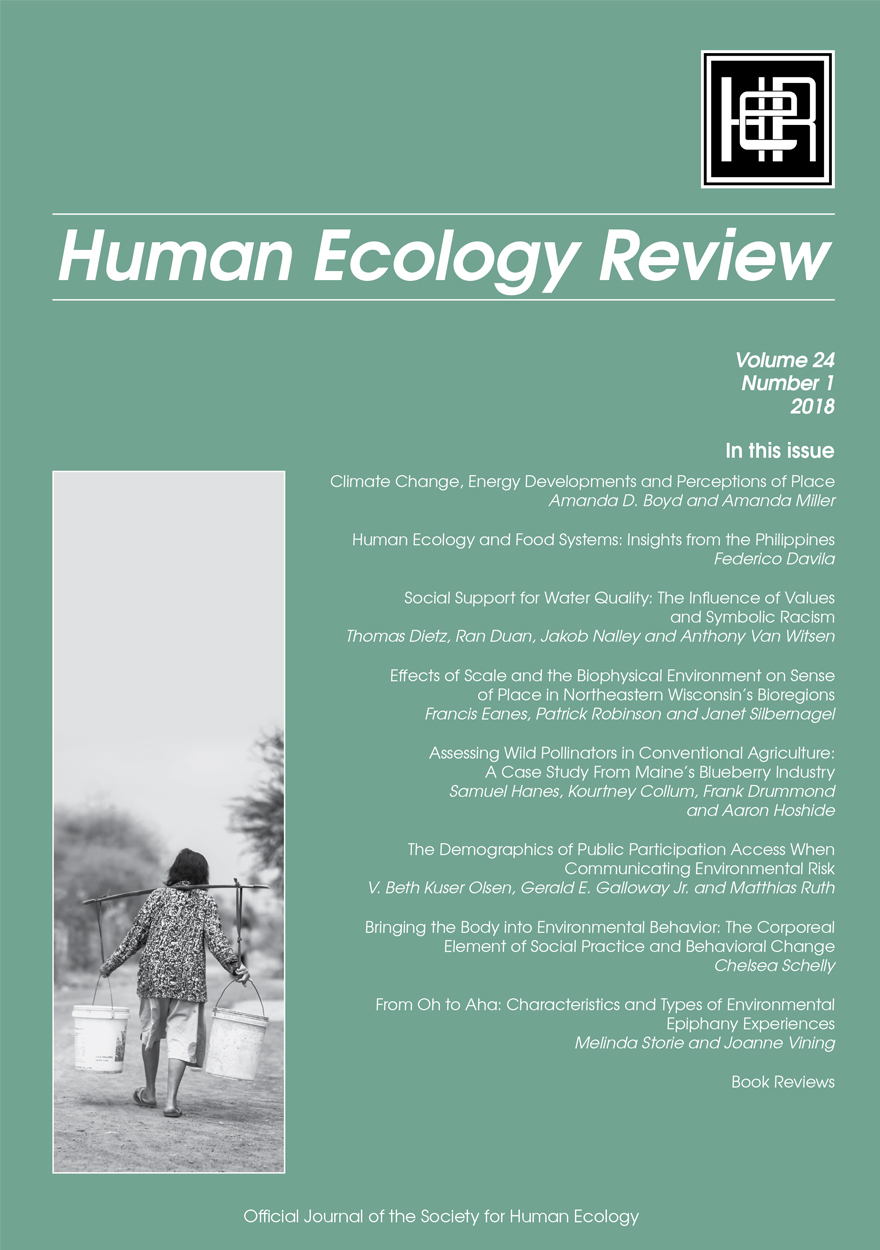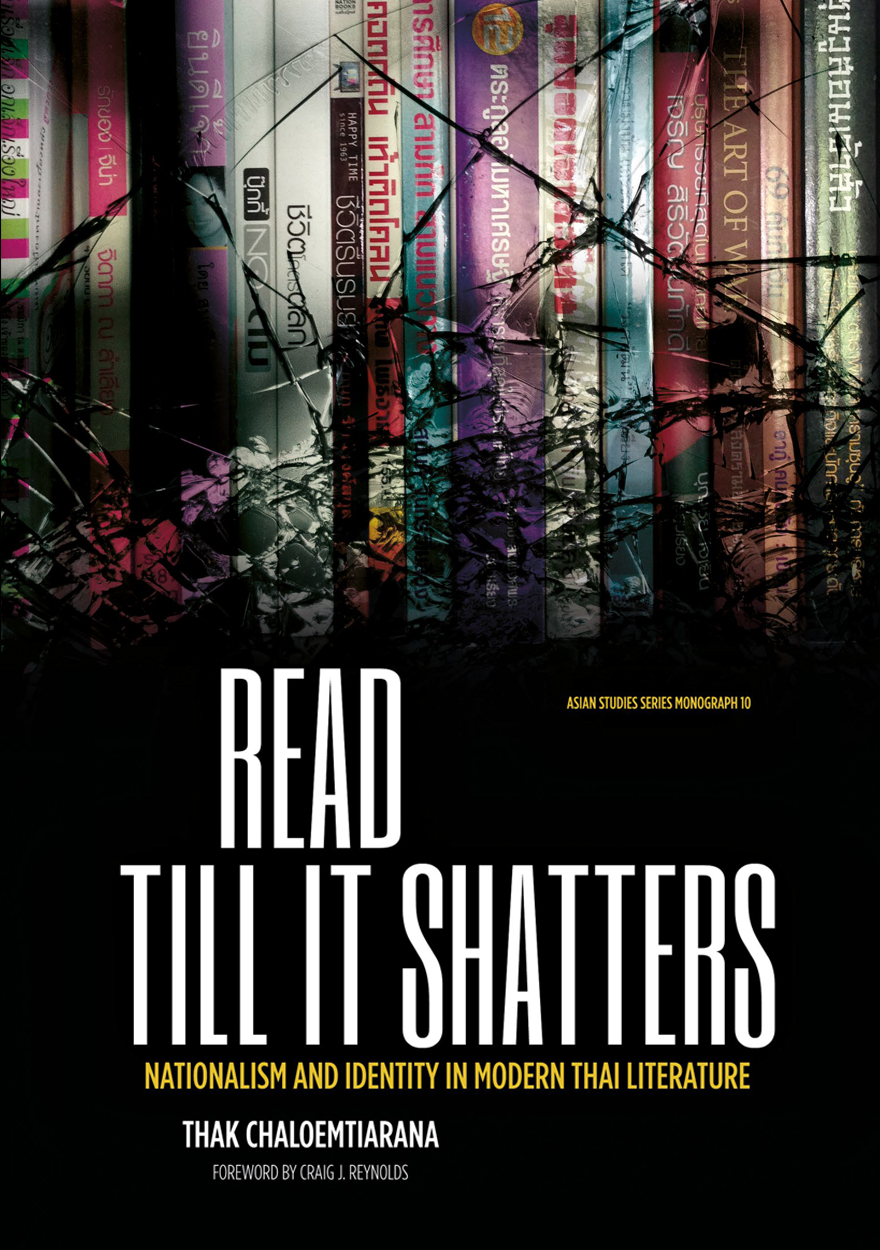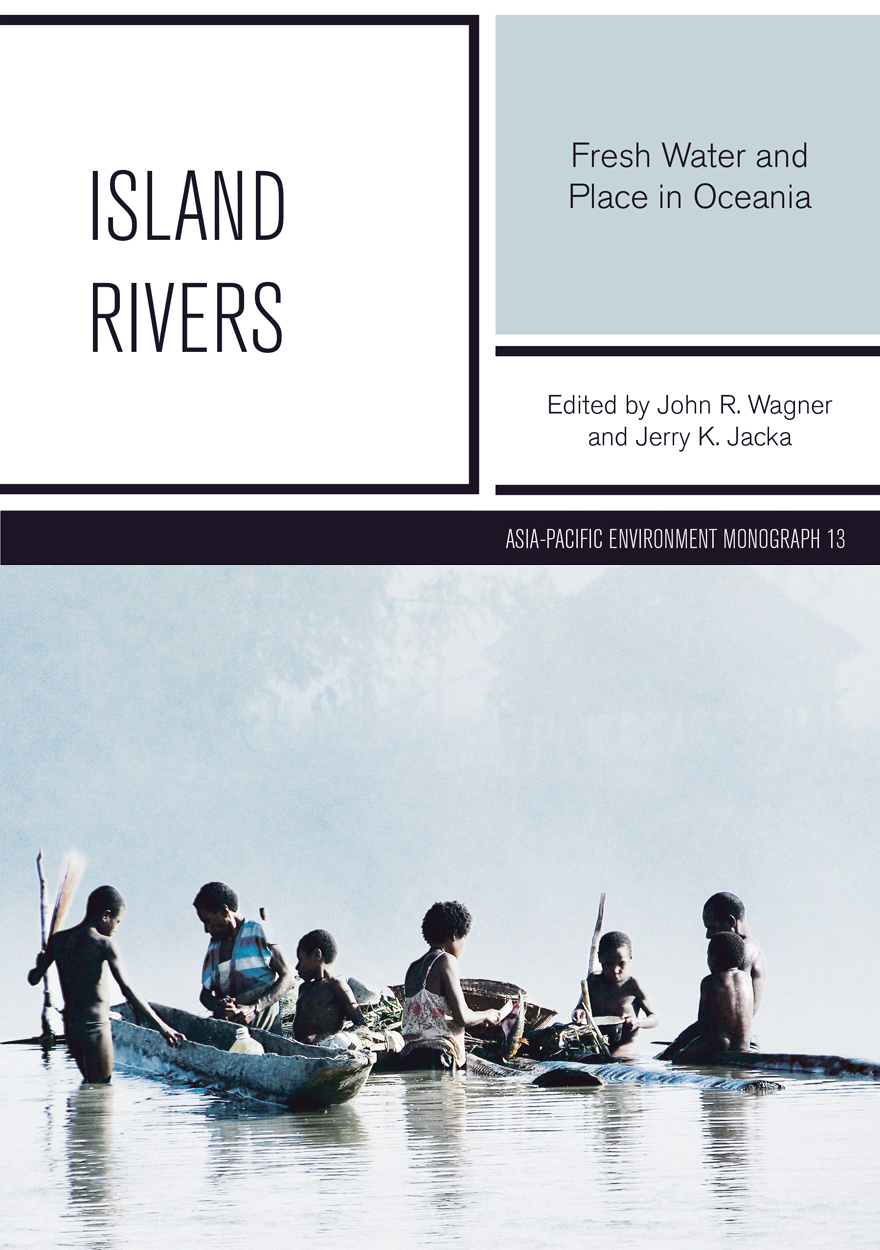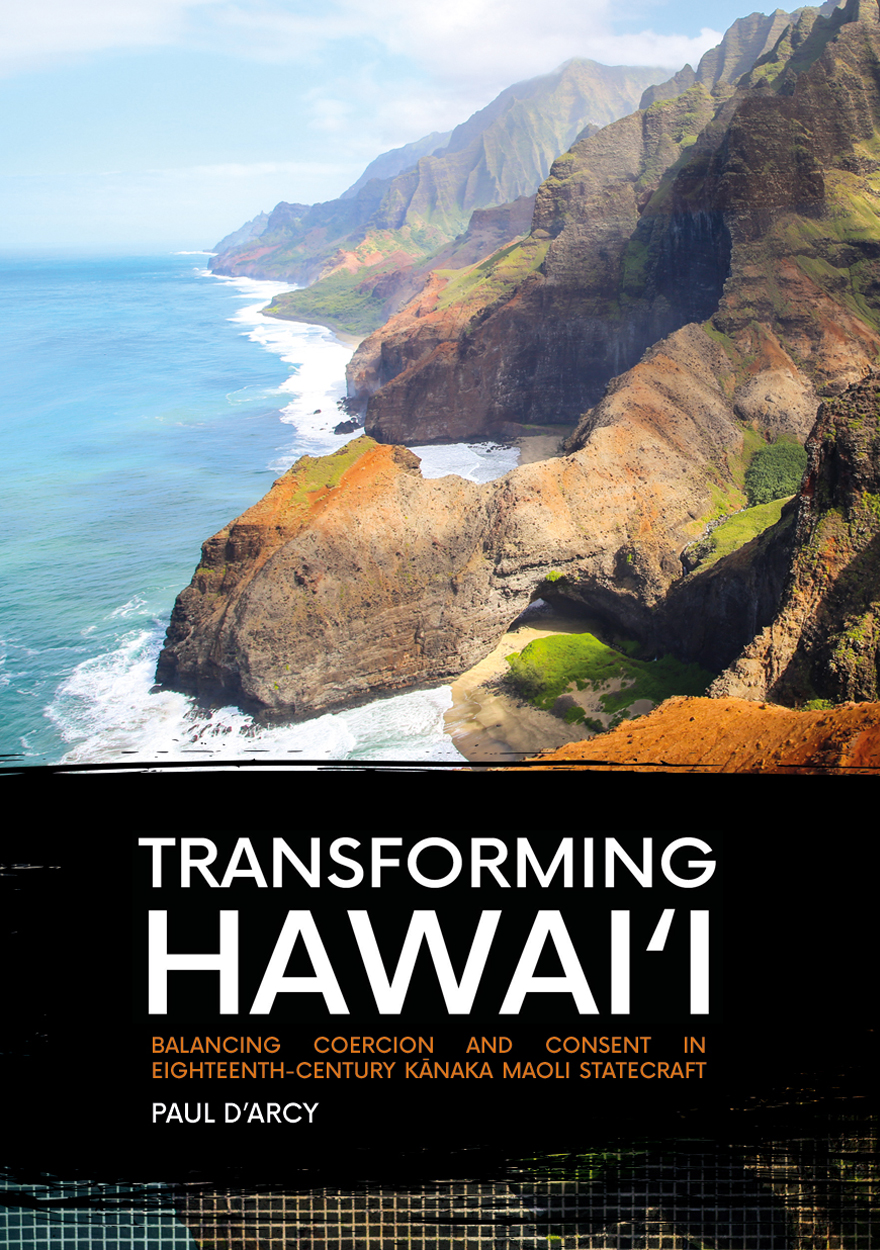Search titles
Displaying results 191 to 200 of 628.

Human Ecology Review: Volume 24, Number 1 »
Publication date: September 2018
Human Ecology Review is a semi-annual journal that publishes peer-reviewed interdisciplinary research on all aspects of human–environment interactions (Research in Human Ecology). The journal also publishes essays, discussion papers, dialogue, and commentary on special topics relevant to human ecology (Human Ecology Forum), book reviews (Contemporary Human Ecology), and letters, announcements, and other items of interest (Human Ecology Bulletin). Human Ecology Review also publishes an occasional paper series in the Philosophy of Human Ecology and Social–Environmental Sustainability.
Download for free
Not available for purchase

Divided Loyalties »
Displacement, belonging and citizenship among East Timorese in West Timor
Authored by: Andrey Damaledo
Publication date: September 2018
Drawing on extensive ethnographic fieldwork, this study explores the ideas of belonging and citizenship among former pro-autonomy East Timorese who have elected to settle indefinitely in West Timor. The study follows different East Timorese groups and examines various ways they construct and negotiate their socio-political identities following the violent and destructive separation from their homeland. The East Timorese might have had Indonesia as their destination when they left the eastern half of the island in the aftermath of the referendum, but they have not relinquished their cultural identities as East Timorese. The study highlights the significance of the notions of origin, ancestry and alliance in our understanding of East Timorese place-making and belonging to a particular locality. Another feature of belonging that informs East Timorese identity is their narrative of sacrifice to maintain connections with their homeland and move on with their lives in Indonesia. These sacrificial narratives elaborate an East Timorese spirit of struggle and resilience, a feature further exemplified in the transformation of their political activities within the Indonesian political system.

International Review of Environmental History: Volume 4, Issue 2, 2018 »
Edited by: James Beattie
Publication date: September 2018
International Review of Environmental History takes an interdisciplinary and global approach to environmental history. It encourages scholars to think big and to tackle the challenges of writing environmental histories across different methodologies, nations, and time-scales. The journal embraces interdisciplinary, comparative and transnational methods, while still recognising the importance of locality in understanding these global processes.
The journal's goal is to be read across disciplines, not just within history. It publishes on all thematic and geographic topics of environmental history, but especially encourage articles with perspectives focused on or developed from the southern hemisphere and the ‘global south’.
Download for free
Not available for purchase

Read till it shatters »
Nationalism and identity in modern Thai literature
Authored by: Thak Chaloemtiarana
Publication date: August 2018
This book introduces readers to modern Thai literature through the themes of modernity, nationalism, identity and gender. In the cultural, political and social transformations that occurred in Thailand during the first half of the twentieth century, Thai literature was one of the vehicles that moved the changes. Taking seriously ‘read till it shatters’, a Thai phrase that instructs readers to take apart the text, to break it down, to deconstruct it, Thak Chaloemtiarana challenges the Thai literary canon from the margins and suggests ways of expanding and enriching it.
Thai literature is scarce in translation and requires the skills of a scholar fluent in Thai to comprehend it. Thak is a political scientist turned literary scholar who is bilingual in Thai and English and an avid reader of Thai fiction by authors up and down the social scale. Here he offers lively insights into his favourite literary genres with fresh readings of early Thai novels, Sino-Thai biographies and memoirs of the rich and famous.
‘Thak Chaloemtiarana is an inquisitive man. Late in his career he switched from politics to literature. In these chapters, he draws on a lifetime of reading about writers and writing in Thailand over the past century. He nods towards the usual big names—King Vajiravudh, Luang Wichit, Kulap Saipradit, Kukrit Pramoj—but spends more time on those found in the lesser visited stacks of the libraries, the secondhand bookstalls, and the shelf by the supermarket checkout. His themes are familiar—Thailand and the West, Thai nationalism, the Thai-Chinese, and women under patriarchy—but the angles of vision are original. With a cast ranging from motor-racing princes through sexy Egyptian mummies and a feminist serial murderer to starlets touting breast-enhancement techniques, this book educates, enlightens, and entertains.’
— Dr Chris Baker, Bangkok-based author with Pasuk Phongpaichit, A History of Ayutthaya (Cambridge 2017)

Carl Strehlow’s 1909 Comparative Heritage Dictionary »
An Aranda, German, Loritja and Dieri to English Dictionary with Introductory Essays
Edited by: Anna Kenny
Publication date: August 2018
Carl Strehlow’s comparative dictionary manuscript is a unique item of Australian cultural heritage; it is a large collection of circa 7,600 Aranda, 6,800 Loritja (Luritja) and 1,200 Dieri to German entries compiled at the beginning of the twentieth century at the Hermannsburg Mission in central Australia. It is an integral part of Strehlow’s ethnographic work on Aboriginal cultures that his German editor Baron Moritz von Leonhardi published as Die Aranda- und Loritja-Stämme in Zentral-Australien (Strehlow 1907–1920) in Frankfurt. Strehlow and his editor had planned to publish a language study that included this comparative dictionary, but it remained unpublished until now due to a number of complicated historical and personal circumstances of the main characters involved with the dictionary.
Strehlow’s linguistic work is historically and anthropologically significant because it probably represents the largest and most comprehensive wordlist of Indigenous languages compiled in Australia during the early stages of contact. It is an important primary source for Luritja and Aranda speakers. Both languages are spoken in homes and taught in schools in central Australia.
The reasons for presenting this work as a heritage dictionary—that is, as an exact transcription of the original form of the handwritten manuscript—are to follow the Western Aranda people’s wishes and to maintain its historical authenticity, which will prove to be of great use to both Indigenous people and scholars interested in language.

The Neoliberal State, Recognition and Indigenous Rights »
New paternalism to new imaginings
Edited by: Deirdre Howard-Wagner, Maria Bargh, Isabel Altamirano-Jiménez
Publication date: July 2018
The impact of neoliberal governance on indigenous peoples in liberal settler states may be both enabling and constraining. This book is distinctive in drawing comparisons between three such states—Australia, Canada and New Zealand. In a series of empirically grounded, interpretive micro-studies, it draws out a shared policy coherence, but also exposes idiosyncrasies in the operational dynamics of neoliberal governance both within each state and between them. Read together as a collection, these studies broaden the debate about and the analysis of contemporary government policy.
The individual studies reveal the forms of actually existing neoliberalism that are variegated by historical, geographical and legal contexts and complex state arrangements. At the same time, they present examples of a more nuanced agential, bottom-up indigenous governmentality. Focusing on intense and complex matters of social policy rather than on resource development and land rights, they demonstrate how indigenous actors engage in trying to govern various fields of activity by acting on the conduct and contexts of everyday neoliberal life, and also on the conduct of state and corporate actors.

Island Rivers »
Fresh Water and Place in Oceania
Edited by: John R. Wagner, Jerry K. Jacka
Publication date: June 2018
Anthropologists have written a great deal about the coastal adaptations and seafaring traditions of Pacific Islanders, but have had much less to say about the significance of rivers for Pacific island culture, livelihood and identity. The authors of this collection seek to fill that gap in the ethnographic record by drawing attention to the deep historical attachments of island communities to rivers, and the ways in which those attachments are changing in response to various forms of economic development and social change. In addition to making a unique contribution to Pacific island ethnography, the authors of this volume speak to a global set of issues of immense importance to a world in which water scarcity, conflict, pollution and the degradation of riparian environments afflict growing numbers of people. Several authors take a political ecology approach to their topic, but the emphasis here is less on hydro-politics than on the cultural meaning of rivers to the communities we describe. How has the cultural significance of rivers shifted as a result of colonisation, development and nation-building? How do people whose identities are fundamentally rooted in their relationship to a particular river renegotiate that relationship when the river is dammed to generate hydro-power or polluted by mining activities? How do blockages in the flow of rivers and underground springs interrupt the intergenerational transmission of local ecological knowledge and hence the ability of local communities to construct collective identities rooted in a sense of place?

Indigenous Mobilities »
Across and Beyond the Antipodes
Edited by: Rachel Standfield
Publication date: June 2018
This edited collection focuses on Aboriginal and Māori travel in colonial contexts. Authors in this collection examine the ways that Indigenous people moved and their motivations for doing so. Chapters consider the cultural aspects of travel for Indigenous communities on both sides of the Tasman. Contributors examine Indigenous purposes for mobility, including for community and individual economic wellbeing, to meet other Indigenous or non-Indigenous peoples and experience different cultures, and to gather knowledge or experience, or to escape from colonial intrusion.
‘This volume is the first to take up three challenges in histories of Indigenous mobilities. First, it analyses both mobility and emplacement. Challenging stereotypes of Indigenous people as either fixed or mobile, chapters deconstruct issues with ramifications for contemporary politics and analyses of Indigenous society and of rural and national histories. As such, it is a welcome intervention in a wide range of urgent issues. Second, by examining Indigenous peoples in both Australia and New Zealand, this volume is an innovative step in removing the artificial divisions that have arisen from “national” histories. Third, the collection connects the experiences of colonised Indigenous peoples with those of their colonisers, shifting the long-held stereotypes of Indigenous powerlessness. Chapters then convincingly demonstrate the agency of colonised peoples in shaping the actions and the mobility itself of the colonisers.
While the volume overall is aimed at opening up new research questions, and so invites later and even more innovative work, this volume will stand as an important guide to the directions such future work might take.’
— Heather Goodall, Professor Emerita, UTS

Transforming Hawai‘i »
Balancing Coercion and Consent in Eighteenth-Century Kānaka Maoli Statecraft
Authored by: Paul D’Arcy
Publication date: June 2018
This study examines the role of coercion in the unification of the Hawaiian Islands by Kamehameha I between 1782 and 1812 at a time of increasing European contact. Three interrelated themes in Hawaiian political evolution are examined: the balance between coercion and consent; the balance between general structural trends and specific individual styles of leadership and historical events; and the balance between indigenous and European factors. The resulting synthesis is a radical reinterpretation of Hawaiian warfare that treats it as an evolving process heavily imbued with cultural meaning. Hawaiian history is also shown to be characterised by fluid changing circumstances, including crucial turning points when options were adopted that took elements of Hawaiian society on paths of development that proved decisive for political unification. These watershed moments were neither inevitable nor predictable. Perhaps the greatest omission in the standard discourse on the political evolution of Hawaiian society is the almost total exclusion of modern indigenous Hawaiian scholarship on this topic. Modern historians from the Hawai‘inuiākea School of Hawaiian Knowledge at the University of Hawai‘i at Mānoa argue that political leadership and socioeconomic organisation were much more concensus-based than is usually allowed for. Above all, this study finds modern indigenous Hawaiian studies a much better fit with the historical evidence than more conventional scholarship.

Popular Music, Stars and Stardom »
Publication date: June 2018
A popular fascination with fame and stardom has existed in Western culture since the late eighteenth century; a fascination that, in the twenty‑first century, reaches into almost every facet of public life. The pervasive nature of stardom in modern society demands study from the perspectives of a range of distinct but thematically connected disciplines. The exploration of intersections between broader considerations of stardom and the discourses of popular music studies is the genesis for this volume. The chapters collected here demonstrate the variety of work currently being undertaken in stardom studies by scholars in Australia. The contributions range from biographical considerations of the stars of popular music, contributions to critical discourses of stardom in the industry more broadly, and the various ways in which the use of astronomical metaphors, in both cultural commentary and academic discourse, demonstrate notions of stardom firmly embedded in popular music thought. Not only do these chapters represent a range of perspectives on popular music, stars and stardom, they provide eloquent and innovative contributions to the developing discourse on stardom in popular music.



